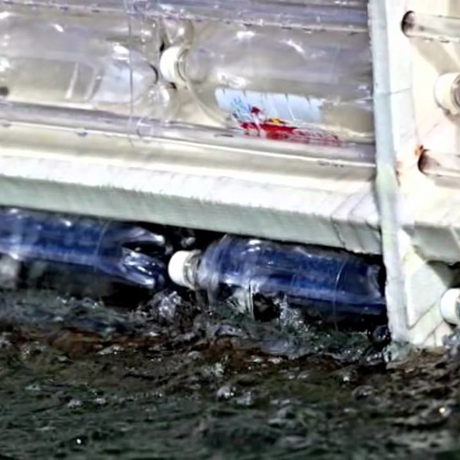Science News
Straws Suck

“It is expected that by the year 2050 there will be more plastic in the ocean than fish. We are out in the water seeing evidence of plastic pollution everywhere we go.” Surfrider Foundation volunteer and Rise Above Plastics leader Eva Holman is fighting a battle against plastic in our oceans from her perch in San Francisco. Since Surfrider and other organizations have been successful in banning plastic bags and plastic microbeads in not only California but also nationwide, they’re now turning their efforts to another foe: plastic straws.
According to Surfrider’s website, 500 million straws are used in the U.S. every day, and they don’t all make it to the garbage or recycling bin. “Plastic straws have been one of the top ten items found during our beach cleanups for more than 20 years,” Holman explains. “They are unnecessary and are only used for a few minutes before being discarded. They can cause real harm to sea turtles and other sea creatures and when they break down in a marine environment they create toxic pollution in the water.”
The Academy’s Luiz Rocha has seen plastic pollution first hand. “Plastics, they don't degrade quickly, they take a long time… up to 400 or 500 years,” he says. “They stay in the water for a long time, and they get carried around by currents, so they're seen practically everywhere.” Even places humans have rarely visited, such as the deep coral reefs known as the Twilight Zone that Rocha studies. “A lot of the time we go to a reef that nobody has ever been to before at 120, 130 meters—so 400, 500 feet depth—and when we get there we find things like diapers, plastic bags, plastic bottles. It's really sad to see. To know that you're the first human to see that habitat and already see effects of human impact there. Plastics are a big problem—I think one of the top three problems globally for the oceans.”
And straws are a big part of that, so in 2015, the local San Francisco Surfrider chapter launched Plastic Straws Suck, a campaign to get restaurants to stop using plastic straws. “Right now many restaurants automatically place a plastic straw in every drink ordered,” Holman says. “We would like to see this behavior change and for straws to only be offered upon request. We are asking people to carry reusable straws with them if they like using a straw, much like you would a reusable bag or water bottle. Ultimately our goal is to get straws off that top ten list for good.”
So ask your server to skip the straw. “The best alternative is no straw,” she says. “The second best is a reusable metal, glass or bamboo straw, the third is a paper straw. Unfortunately compostable or bio-plastics are not a good alternative as they do not break down in a marine environment and can cause the same harm as a plastic straw. They are also very hard to compost and commonly end up in the wrong bin, as they look just like a plastic straw.”
But the plastic problem is something we can all work to stop, Holman says. Going strawless, telling your representative, or helping at a beach cleanup are good ways to start. “As citizens we can very slightly change our own behaviors and greatly impact the amount of plastic going into the ocean we’re surrounded by,” Holman says. “It’s empowering to know that each of us can make a big difference with some small changes, like asking for no straw.”
Image: Elena/Flickr


